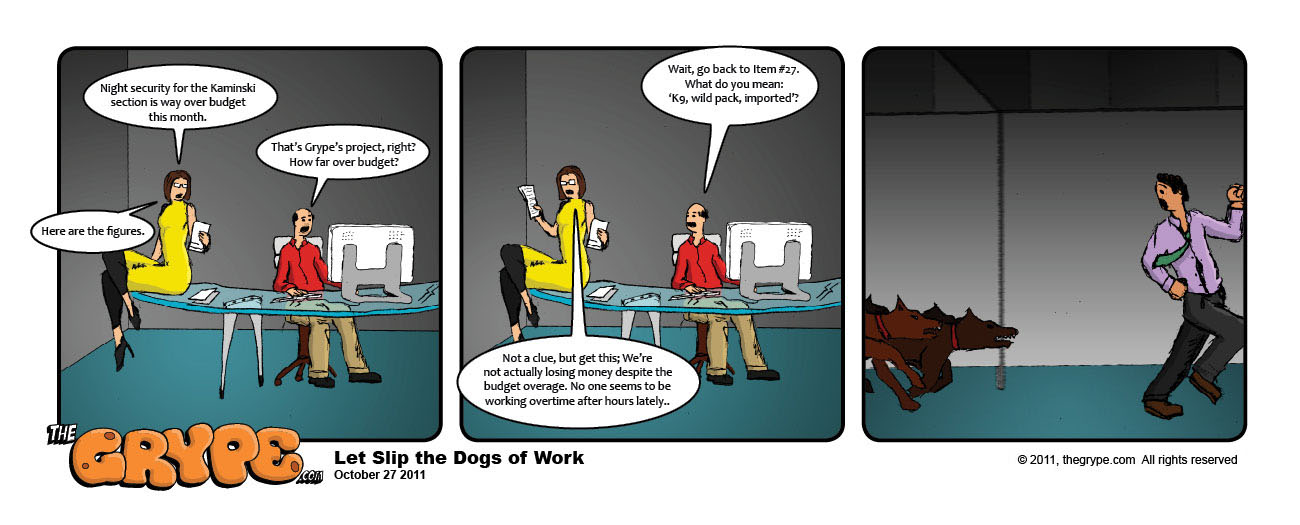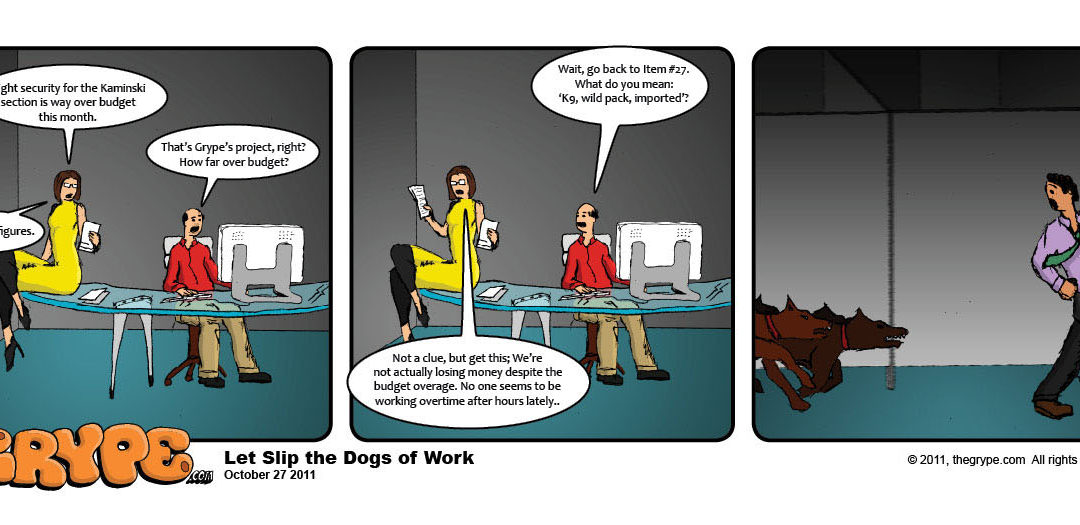 All places of employment possess their own social structure. Different personalities mesh amidst the complexities of interpersonal interaction to generate the specific social milieu of that workplace. Sometimes these structures are unofficial, casual affairs; in other cases they are scrupulously regimented and governed by ironclad company policy. The end result can run the gamut between being a friendly, mutually-supportive work group, to the opposite extreme where the workplace is a savage social minefield of viciously competitive commercial conflict.
All places of employment possess their own social structure. Different personalities mesh amidst the complexities of interpersonal interaction to generate the specific social milieu of that workplace. Sometimes these structures are unofficial, casual affairs; in other cases they are scrupulously regimented and governed by ironclad company policy. The end result can run the gamut between being a friendly, mutually-supportive work group, to the opposite extreme where the workplace is a savage social minefield of viciously competitive commercial conflict.
In the business world a certain level of friendly (sometimes less-than-friendly) competition is regarded as a beneficial opportunity for employers or managers to inspire individual achievement and innovation, metaphorically “forcing the cream to rise to the top.” But if handled poorly this approach can backfire, resulting in a workplace full of surly, understandably-paranoid employees who waste their time (and sacrifice valuable productivity) engaging in intracorporate warfare.
We’ve already discussed so-called “Bunkhouse Management” in a previous Grype. That organizational style pits the employees against one another in a free-for-all, based on the assumption that whoever ends up ruling the roost must (by process of elimination) be the best candidate for the job. But that logic is seriously flawed, since sometimes the skill-set required to browbeat one’s fellow employees into grudging submission is NOT the ideal skill-set required to run a particular office workgroup. Worse, constant pressure to excel at your job (lest your torch be ceremonially doused presaging your swift kick off the island) can actually LESSEN productivity. Some employees handle high-stress conditions well; others not so much. It is always wise to exercise caution before perfunctorily handing out walking papers based solely on that trait. Such dismissals might mistakenly result in the loss of a truly-gifted employee, simply because that worker—though a genius at his job— is unable to reliably focus his or her talent while simultaneously dodging attacks from co-workers.
When any great new talent appears in a competitive workplace, the rest of the competitors will instinctively act to defensively block the potential advancement of the rising star. This is basic tribal survival strategy, deeply bred into the metal processes of the human animal since our hunter-gatherer days. Yesterday’s watering hole is today’s water cooler; the modern boardroom is simply the latest in a long line of metaphorical grassy veldts where hunters compete for game. The wise business owner makes sure his best hunters exist in an optimal environment to achieve the best results while hunting. But… not all hunters do their best hunting as part of a pack; few will turn in their best performance if forced to toss spears at the rest of the hunting party while competing for the same prey.
Another misguided approach is the “shoot for the moon” strategy, in which the employer sets impossible tasks before his employees and demands their achievement. The logic here is that, though the workers can never really reach the official “goal,” they may strive more and achieve more in the attempt than they might otherwise, were they aiming at a more realistic target.
The downside of this strategy? It dooms the employees to an endless game of “chase the carrot,” a soul-killing grind of perpetual failure. Most of them will inevitably grow angry and bitter, and ultimately burn out. There is constant employee turnover in places where this style of management is practiced. Hapless workers in these traps either give up and quit, or are fired over their increasingly bad attitude.
It has recently become popular to treat all areas of human endeavor as activities that can be “coached.” Life coaches and career coaches abound. But contrary to that rhetoric, some well-worn sports coaching techniques do NOT successfully translate into daily life: you can’t force people to succeed and thrive under a constant threat of fear— not for long. A cooperative workplace is always more productive, in the long term, than a severely competitive one. Most of us would rather march together than endlessly race one another to a finish line that doesn’t exist.
Also, it helps if there is a wide selection of free snacks in the break room.

